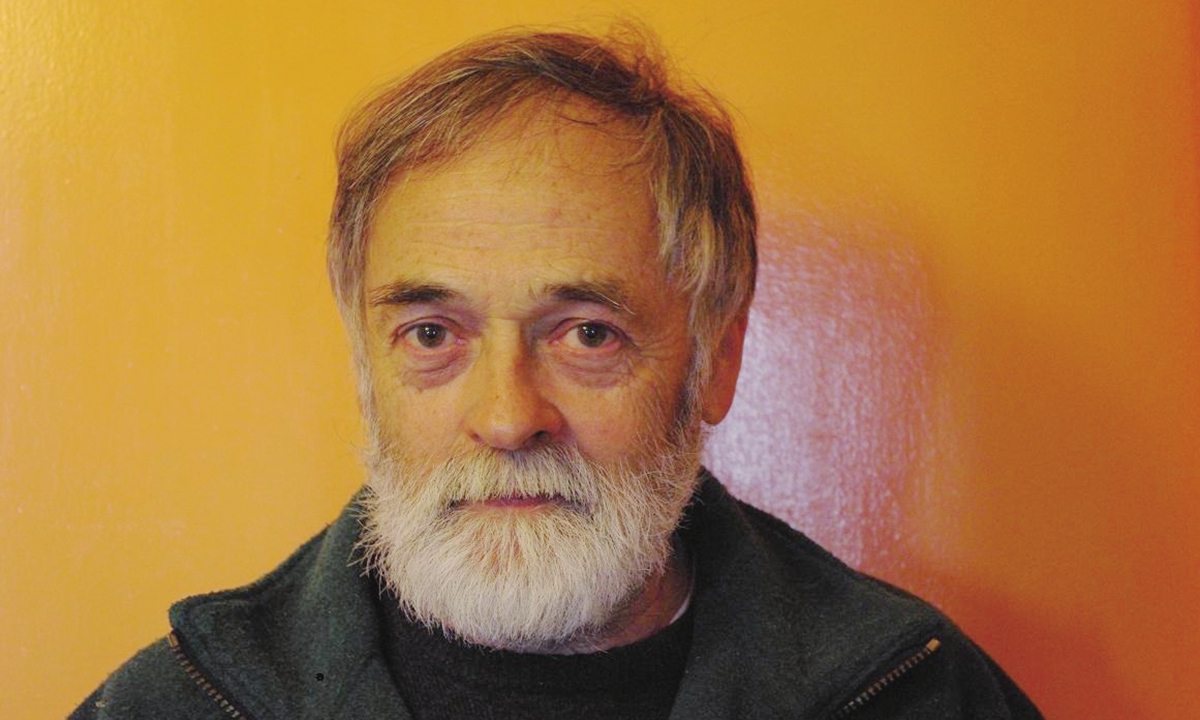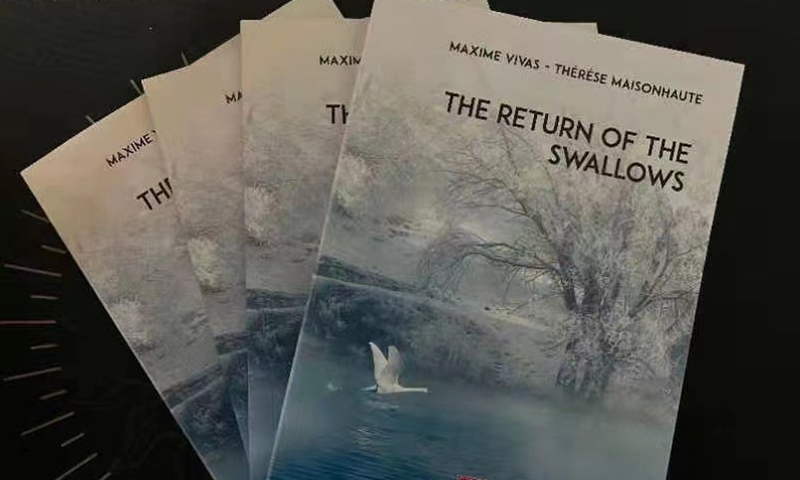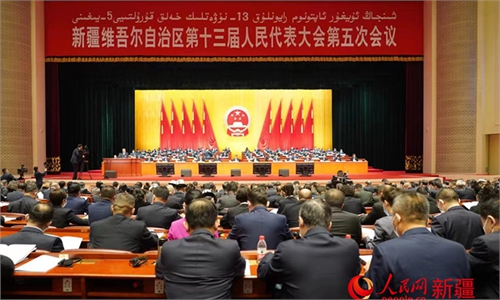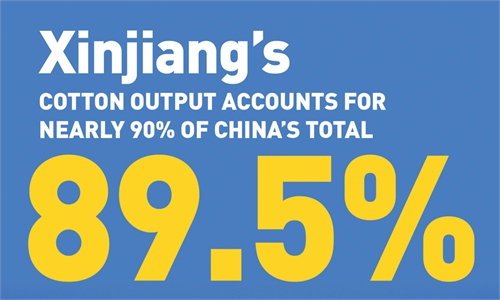
French writer Maxime Vivas Photo: Courtesy of Maxime Vivas
"Some websites, newspapers, radio and television stations, politicians, sinologists, researchers and experts are hyping fake news about Xinjiang, which tend to turn into a global movement. But in my opinion, they are just a group of rogues and hooligans." After the release in December 2020, of his first book Uygurs, to put an end to the fake news, Maxime Vivas, a well-known French writer, current affairs commentator and journalist, published in English his second book on the Xinjiang Uygur Autonomous Region, The Return of the Swallow recently.
Vivas visited Xinjiang twice in 2016 and 2018. In 2011, the French author published the book Behind the Smile: The Hidden Side of the Dalai Lama to expose the true face of the Dalai Lama.
In his new book, Vivas records at great length his visits to farms, herders' homes, wetlands, wineries and other places in Xinjiang. Interestingly, a detail from his visit to local site of desertification control measure, in Shihezi, became the direct inspiration for the book's title. "Our host was proud to show us a swallow's nest built under the roof next to an electric light. In order not to disturb the swallows, they switched off the lights. How much we wish to see swallow nests under the roofs in front of our homes and cut off the power outside without disturbing them! It was in such a coincidence that he decide to name the book The Return of the Swallows, said Vivas.
In the book's opening passages, Vivas explicitly states that he has no intention of eulogizing China's political, economic, media, judicial, social and cultural systems. "They have their own systems which are unique to themselves although their system also has shortcomings. They are making efforts to improve it, a fact that may not be recognized by the 'international community' as is mentioned by our media (in fact, only a few Western powers). However, such a pace is undoubtedly compatible with the hugeness and complexity of this country," he comments in the book.

The Return of the Swallows. Photo: GT
In his book, the French writer wants the readers to be aware of the implicit requirements of Western society to have every journalist, writer, intellectual and witness who talks about China to make some negative comments in their works to prove their so-called righteousness, independence or even loyalty. "The more critical it is, the more credible it seems to be," Vivas said, adding that, in the West, a book about the Grand Canyon in Colorado is just a book purely about the canyon, while a book about China's Xinjiang should be interspersed with sharp criticism of Chinese politics.
The Return of the Swallows has three chapters: "Uygurs, the United States, the media and us," "Culture, education and health" and "About our understanding of Xinjiang."
In the first chapter, Vivas unceremoniously accused those who hype up fake news related to Xinjiang calling them "rogues and hooligans."
He mentioned that the Chinese government has made efforts to reduce poverty of local ethnic minorities through various policies, develop education and make Xinjiang a stable region where no one has to give up their language, culture and beliefs.
During this period, some mainstream media around the world colluded with a number of "humanitarian" organizations, political parties and websites to hype sensational disinformation without confirmation, and quickly transformed these untrue views into a seemingly real "facts."
"Obviously, the real purpose of this campaign is not here, but to create some thorny troubles for China, a country that has awakened and is moving towards the forefront of the world with peaceful development. At the same time, it is to create a world public opinion to strengthen the interests of the United States and maintain its leading position in the world," Vivas wrote.
"For all the messages you have read or heard about, the best thing you can do is to gently wipe the junk with a tissue and throw it away. Just like what a good citizen should do, clean up his dog's excrement on the road at any time," he remarked.
In his book, Vivas detailed his own experience and compared the situation with France with an objective conclusion. For instance, when talking about "camera surveillance," he humorously stated that, "of course, what the French media said about Xinjiang is not all wrong as we have really seen cameras installed on the streets. However, the same thing also happened in our cities. For example, in Toulouse, which is where we live, there is a small square by the Garonne River where our city dwellers enjoy cool air in the summer. Some sit on the stone stairs, others lie on the lawn. Some young people drink wine while chatting. However, drinking is forbidden in public places. So, a camera has also been installed from high up to inform the police and remove the alcohol, which the young hate. Moreover, behind this camera there is also a loudspeaker to warn people that drinking liquor is illegal, which more and more young people are complaining about."
Vivas concluded that "we also hope that Westerners have opportunities to come to Xinjiang. As long as we do not intend to cover their eyes and souls, we have every reason to believe the Beijing authority's policy is effective. They have spared no effort to promote the coexistence of many ethnic groups and respect the cultural diversity, which is exactly the source to promote the progress of the human civilization," "Let's wish the return of swallows!" he said.



